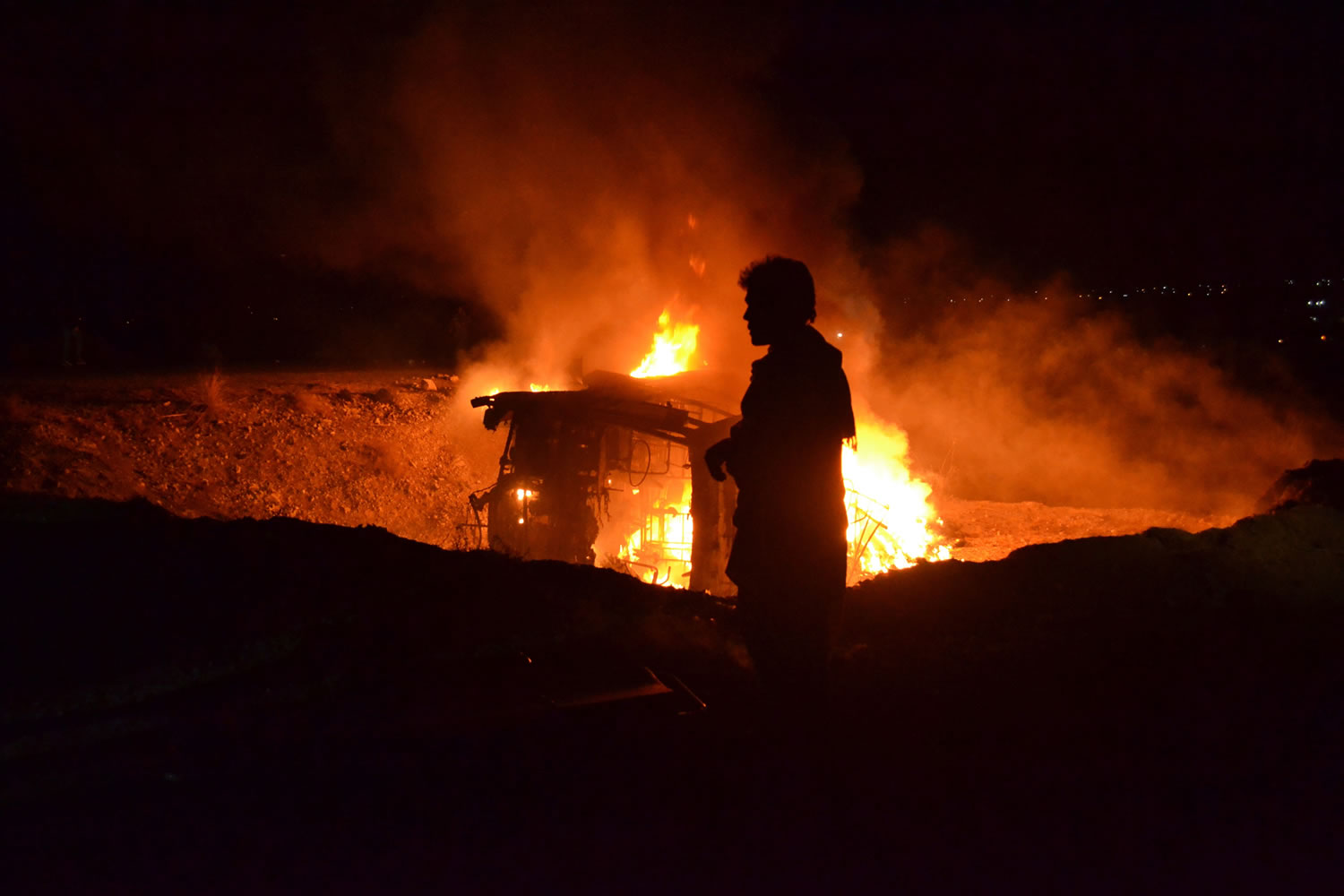ISLAMABAD — Former Pakistani president and army chief Pervez Musharraf failed to appear in court Wednesday for the second hearing in his high-profile treason case after authorities said they found an explosive device near his home.
His lawyers, citing the bomb scare, said it was too dangerous for Musharraf to appear in court. It was the third time since the high treason proceedings began that explosives have been found along the path the former strongman is supposed to take to court.
The security concerns and Musharraf’s refusal to attend have stalled the landmark trial, a rare prosecution of a former top general in a country where the military’s authority is rarely questioned.
It’s the most serious of the legal troubles the 70-year-old Musharraf has faced since he returned to Pakistan in March. He came back hoping to run in elections but instead had been faced with a barrage of court cases connected to his rule and barred from being a candidate.
The case has also brought some grumbling from within the military’s supporters, wary that one of their own is in court.
For their part, Musharraf’s lawyers have contended that the judiciary trying him and the government bringing the case are biased against the former general. The current prime minister, Nawaz Sharif, was the man deposed by Musharraf in the 1999 coup and the recently retired chief justice was also detained by Musharraf in 2007.
The judge in Wednesday’s hearing, Faysal Arab, was sympathetic to the defense’s security concerns and adjourned the hearing until Thursday. But he pointed out the security arrangements and suggested he could issue an arrest warrant for Musharraf if he fails to appear Thursday.
Police officer Nayyar Saleem said officials scanning the route to court spotted the device on Wednesday along a road about two kilometers (a mile) from Musharraf’s farmhouse on Islamabad’s outskirts.
One of Musharraf’s lawyers, Ahmed Qasuri, told the three-member panel of judges hearing the case that there were “many security issues” preventing the former leader’s appearance and that the court would be responsible if anything went wrong.
Islamabad police officials said 1,000 security personnel were deployed to protect Musharraf but said they could not guarantee a bomb-proof vehicle for the former general to ride in.
Musharraf’s lawyers have also argued that the special court hearing his case was not properly formed, that the individual judges are biased and that the case against him is a vendetta by the prime minster and the recently retired chief justice.
At one point during the sometimes testy proceedings, Qasuri pointed his finger at the prosecutor, Akram Sheikh, and said: “He’s not a prosecutor. He’s a persecutor!”
Musharraf took power in a 1999 coup and ruled Pakistan for nearly a decade.
But he’s not on trial for the coup. Instead he’s accused of high treason in connection with the state of emergency he imposed in 2007 and the detention of judges.
Those actions sparked widespread demonstrations by lawyers around the country that eventually weakened the rule of the already unpopular Musharraf so much that he was forced to step down.
Musharraf’s legal ups and downs have riveted a country that has experienced three military coups and where top generals and army chiefs have traditionally been above the law. The scenes of Musharraf going into and out of court rooms — essentially being treated like a common citizen — has underlined how much prestige the power the Pakistani military has lost in recent years.
The army has said nothing publicly about the Musharraf trial but many retired military officers — sometimes a barometer for opinion within the service — have stood up for Musharraf.
A group of retired military officers met Tuesday in Islamabad in what was essentially a show of solidarity. Zuha Saeed, a retired major in the Pakistan army, said Musharraf was a “good general” and that he was worried that the trial would not be “free and fair.”
The government pushed back Wednesday against any suggestion that Musharraf may have the support of the military. Information Minister Pervaiz Rasheed said Musharraf is trying to use the army to cover up his crimes and that the army is a “national institution” that is devoted to serving their nation, not one individual.
Meanwhile, a suicide bomber rammed a bomb-laden vehicle into a bus carrying Shiite Muslim pilgrims through the southwestern city of Quetta, killing two people and wounding an additional 26, said police chief Abdur Razzaq Cheema. There was no claim of responsibility but Sunni Muslim extremists who view members of the Shiite minority sect as heretics have carried out multiple such attacks in Baluchistan in the past.



